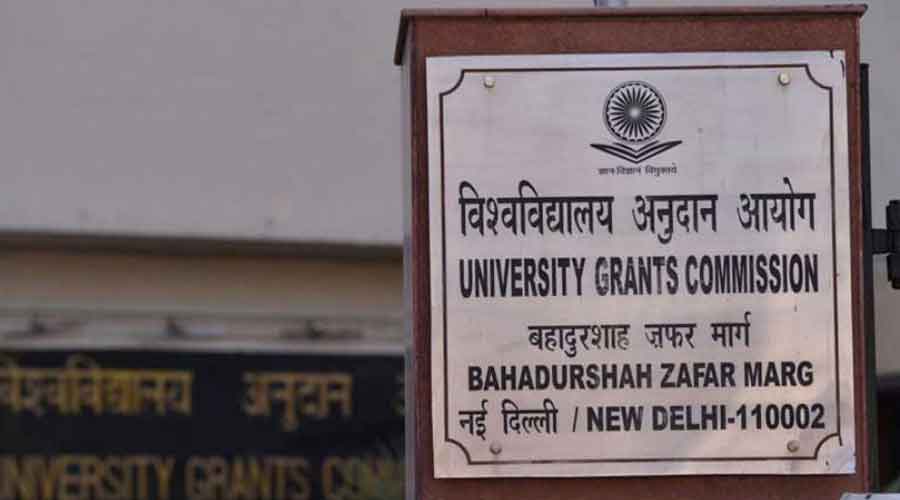The University Grants Commission (UGC) on Tuesday announced its decision to allow students to pursue two degree programmes simultaneously but committed no financial support as academics pointed out feasibility challenges.
UGC chairman Prof M. Jagadesh Kumar told reporters that the National Education Policy (NEP) sought to promote flexibility. The UGC will issue new guidelines to allow the flexibility to students to pursue two degree courses together, he added.
“A student will be able to pursue two academic programmes. For example, a student of BSc Mathematics can also pursue BSc Data Sciences. A student can pursue Masters in two courses,” Kumar said, adding that the commission’s decision would be notified soon.
The new guidelines will allow students to pursue two courses offline, or one course offline and one course in distance or online mode or both the courses in distance or online mode.
In 2012, a UGC committee headed by then vice-chancellor of Himachal Pradesh Central University, Furqan Qamar, had studied this issue and supported the two-degree concept. But his panel had supported one degree in physical mode and another in distance mode.
“I feel good about this decision. Our committee had recommended that the students should be allowed to pursue two degrees simultaneously. This will enable them to widen their career choices and utilise their time more productively,” Qamar said.
However, there are concerns that some private colleges and universities may force students to pursue a second degree or diploma.
“There is a possibility that private institutions will exploit this policy for increasing their earning,” Qamar said.
N. Raghuram, professor of biotechnology at Guru Gobind Singh Indraprasta University here, said there should be a thorough feasibility analysis, risk estimation and mitigation plan apart from a viable financial model to support radical policy changes in higher education.
“When you allow two degrees and if many students want to pursue both the degrees offline, the institutions will need additional infrastructure and faculty. In such a situation, the UGC should provide a clear financial model to support the plan,” Raghuram said.
He said any change might bring several transitional challenges, which had to be handled well to avoid disruption in the conduct of the programmes.
“Students of certain types of courses may have the scope to go for a second degree. It may not be feasible for all courses. A student of BTech in biotechnology may face difficulty in pursuing BTech in civil engineering. The UGC should disclose its policy to enable the institutions and students handle transitional challenges. Also, the institutions should have full freedom to adopt the UGC’s policy from zero to 100 per cent,” Raghuram said.
He said the non-formal system of education offered through distance or online mode would be mainstreamed through this policy.
Asked if any foreign university has done such an experiment, UGC chairman Kumar pleaded ignorance.
On whether such a policy would put additional burden on teachers, he said if students pursued one course online it might not be a problem.










